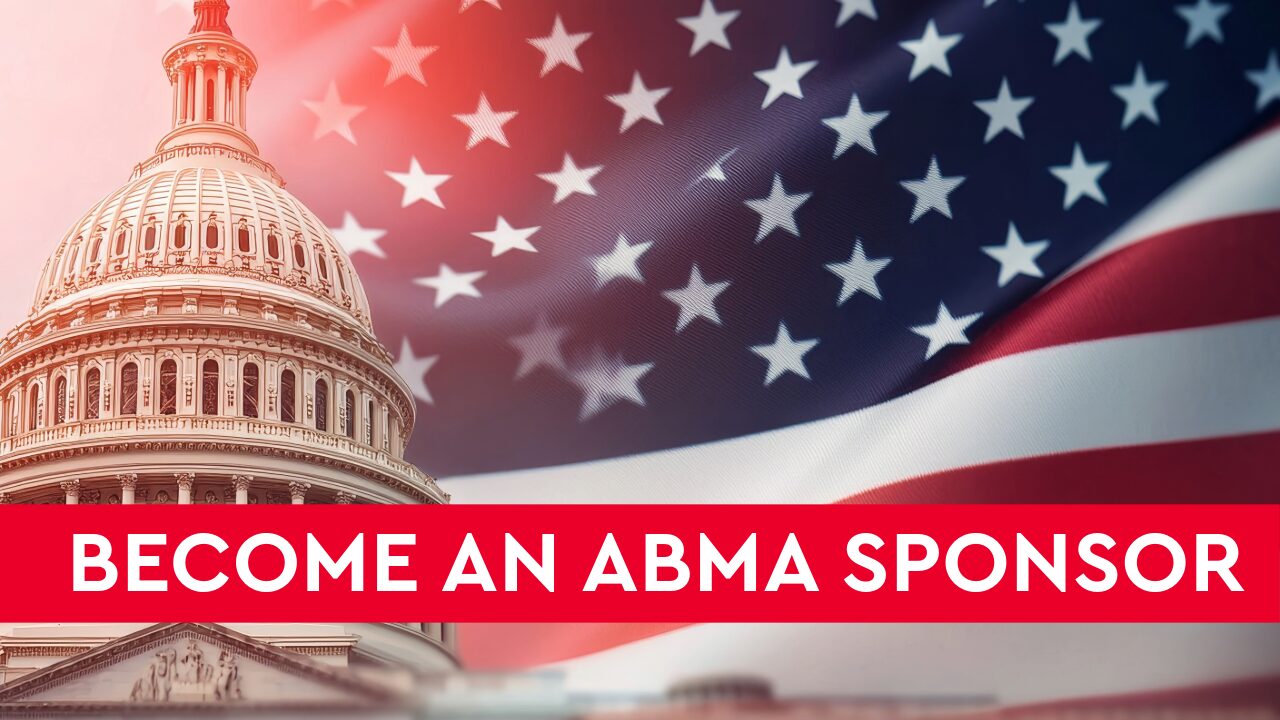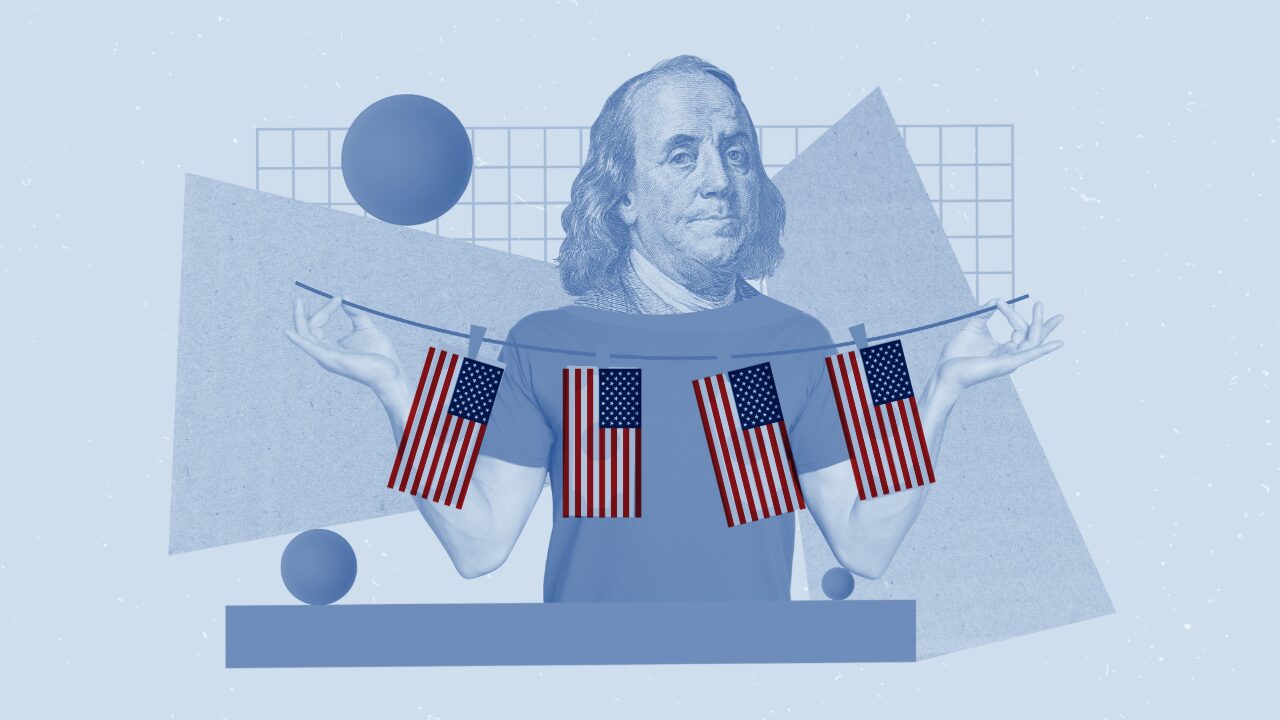Pushing for Permanent Tax Certainty
This week, ABMA submitted comments to the House Ways & Means Committee’s Main Street Tax Team in support of key business tax incentives that help our sector remain competitive.
In short, we focused on retroactive extension of the 100 percent bonus depreciation benefit that began to phase out in 2023 and continued to decrease in 2024. Currently, the “full expensing” benefit is down to 60 percent. Legislation (H.R. 7024) that passed the House in January by an overwhelming bipartisan majority restores this benefit back to 100 percent and does so retroactively back to 2023 and prospectively through 2025. As we have noted, that bill will not move in the upcoming Lame Duck Congressional session, but we are advocating that Congress take up and pass similar legislation early next year in the new Congress.
ABMA also urged Congress to act expeditiously in extending the Sec. 199A deduction for S-Corporations and companies that utilize other pass-through tax structures. This provision of the Tax Cuts and Jobs Act of 2017 (TCJA) authorized a 20 percent deduction for pass-throughs in an effort to level the playing field with larger C-Corporations. Congress correctly recognized that pass-through businesses, including S-Corporations, partnerships, and sole proprietorships, employ 62 percent of the American workforce and do so in every corner of our country. This benefit expires at the end of 2025, and there is legislation sponsored by Rep. Lloyd Smucker (R-PA)—Chair of the Main Street Tax Team—and Sen. Steve Daines (R-MT) to make this deduction permanent. The legislation (H.R. 4721/S. 1706) is the Main Street Tax Certainty Act and is supported by 191 House Members and 34 Senators.
A forum was held earlier this week in Texas where Rep. Beth Van Duyne (R-TX) attended a facility tour and then led a conversation around the importance of Sec. 199A for small and medium-sized employers. Rep. Van Duyne is the Vice Chair of the New Economy Tax Team and is a cosponsor of H.R. 4721. Employers attending the forum emphasized how 199A has allowed them not only to invest in their businesses but has freed up dollars to contribute to local charities in the communities in which they work and live.
ABMA also signed a letter led by the Family Business Estate Tax Coalition to the Rural America Tax Team in support of estate tax reforms. In particular, the letter urges Congress to maintain a “stepped-up basis” for calculating the estate tax. Stepped up basis is critically important to family-owned businesses because it can significantly reduce the potential estate tax burden that may arise when the family passes on the property to the next generation. When a property owner passes away, the basis (or original purchase price) of the property is “stepped up” to the current market value at the time of their death, rather than being based on the original purchase price. This is critical when heirs sell the property, as the capital gains tax is assessed on the difference between the sale price and the stepped-up value, not on the difference between the original purchase price and the sale price. The letter also urges Congress to maintain the enhanced exemption level under the estate tax. The increased estate and gift tax exemption, which is $13.61 million per person for 2024, is set to sunset at the end of 2025. As a result, the exemption will drop back to the prior TCJA level of $5 million, adjusted for inflation.
The other areas where businesses and trade groups are weighing in with the Tax Teams include:
- Renewal of the research and development (R&D) tax credit, which expired in 2022. Like bonus depreciation, this provision allows companies to write off the full cost of R&D expenses in the same year in which the investments are made instead of amortizing the R&D spend over time. The House bill again retroactively restores this key benefit and extends it through 2025.
- Reversion back to Earnings Before Interest, Taxes, Depreciation and Amortization (EBITDA) for calculating interest expense deductibility. Under TCJA, this standard was shortened to EBIT, which is not as generous a metric for calculating interest expenses, and so the net effect has been increased capital costs on U.S. businesses.
- Bump up in the Sec. 179 deduction limits. Right now, businesses may expense the cost of depreciable business assets up to $1.16 million. The bill raises that cap to $1.29 million.
Lobbying Intensifies Around Swipe Fees
Interests on both sides of the debate around credit card “swipe” fees have begun ramping up lobbying help in advance of the upcoming Lame Duck session of Congress following the election. Mastercard has added two firms specializing in the financial services space over the last couple of months in an effort to defeat attempts at enacting the Durbin-Marshall bill that would break the duopoly that Mastercard and Visa currently maintain over credit card transaction processing. On the retail side, the National Association of Convenience Stores—the leading organization supporting the bill—has also just hired financial services lobbying help.
It is unclear whether Leader Schumer intends to add the Durbin-Marshall language to any year- end budget deal that comes together. ABMA is close to the action and meeting with Senate offices to express our support for the Durbin-Marshall bill.




